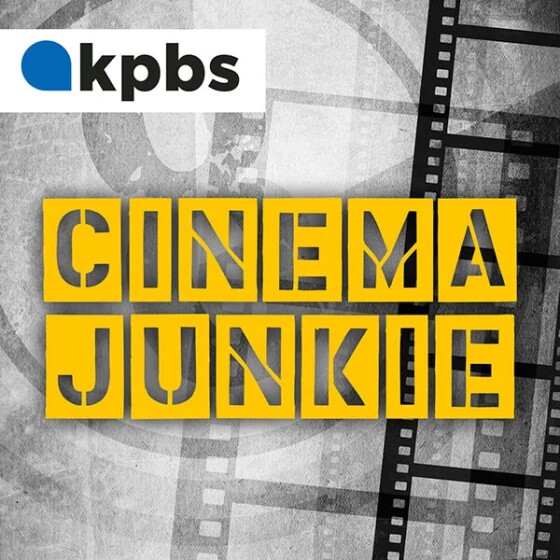
Midday Edition uplifts voices in San Diego with fearless conversations about intriguing issues. Host, Jade Hindmon, cuts through the noise with questions that give listeners a deeper understanding of themselves, people and the community they live in. Guests share diverse perspectives from their expertise and lived experience. In a city and world that's rapidly changing, Jade’s interviews inspire, inform and make you think. Midday Edition airs Monday - Thursday 12pm - 1pm and again from 8pm - 9pm. You can also catch the show anytime on all podcast apps.
-
Yesterday the FDA approved the nation’s fourth coronavirus vaccine. Unlike other previously available mRNA shots, Novavax is a protein-based vaccine. Next, this Saturday, the San Diego Pride Parade returns to the streets of Hillcrest. This and other Pride events mark the return of fully in-person festivities for the first time since the pandemic began. Plus, UC San Diego Health has opened a new headache treatment center offering a wide array of therapies for migraines and other kinds of persistent headache pain. And, a free mental health program is improving the lives of immigrants, refugees and asylum seekers in San Diego. Also, San Diego is among the most sought after destinations for college students in the nation. But when it comes to keeping people around after they’ve graduated, the region doesn’t do so well in comparison to other big California metros. Finally, cannabis advocates in Tijuana are working towards a future where adult-use cannabis is finally legal in Mexico. Not only are they working to get the laws changed in Mexico, but they are also trying to change the perception of cannabis at the border - which has long been associated with Mexican drug cartels.
-
A limited number of monkeypox vaccines will be distributed by the county starting today. Then, KPBS Education Reporter M.G. Perez tells us about a new program to save LGBTQ lives with lessons in harm reduction. Next, the head of San Diego’s new Office of Immigrant Affairs talks about her goals for the new agency. Then, later this week, Californians who are in mental distress and thinking about suicide will be able to call or text a new three digit number to get help, but questions remain on staffing. Plus, long-time voice of the San Diego Padres Ted Leitner talks about his recent induction into the team’s Hall of Fame. Finally, KPBS arts reporter Beth Accomando speaks with the creator of a new series about the making of the beloved film “Star Wars.”
-
As Los Angeles County inches towards a possible return to an indoor masking mandate, San Diego health officials are urging similar caution. And as San Diego struggles with yet another spike in coronavirus cases, another virus has also been catching the attention of health officials in recent months. According to CDC, there have been over 750 confirmed cases of monkeypox in the U.S., with over 130 of those in California. Plus, the true-crime mystery of the 2011 death of Rebecca Zahau in Coronado took another turn late last week. The Zahau family dropped its lawsuit requesting unreleased documents about the case from the San Diego County Sheriff’s Department. Instead, family members say they are now preparing to formally request the Medical Examiner to reclassify the death of 32-year old Zahau from suicide to homicide or undetermined. Also, people who’ve served time in prison often face big obstacles when they get out. But there are several programs in San Diego County that aim to help make that transition easier. Then, the suicide crisis among military veterans is a well-documented and deeply complicated phenomenon. This same issue among active duty servicemen, however, is increasing at an alarming rate in recent years. Finally, the KPBS podcast Port of Entry is back with new episodes. This time with a series of stories on how the border can change minds.
-
The United States remains on edge after its latest high-profile mass shooting on July 4th in Highland Park, Illinois, which resulted in the killing of 7 people, leaving many more injured. Stories like these beg the question - what are the motivations for these acts of violence? Plus, at least two immigrant detainees have been held in solitary confinement for about a week at the for-profit private facility where they are locked up in Bakersfield. The men and their attorney's say it's retaliation for supporting a peaceful labor strike. This weekend in the arts: Southern gothic blues at the Casbah, a last chance to see improv hip hop at The Old Globe and the Barrio Art Crawl.
-
A longstanding cross-border gathering place will soon be replaced with a set of 30-foot walls. Then, a technique developed at UC San Diego and Scripps to detect the Covid virus in wastewater is now being used around the world. Next, a 29-year-old Army veteran was allegedly killed by her neighbor last week at a property run by Veterans Village of San Diego. And, The death of a Navy SEAL candidate in February is raising questions about the safety of basic training. Next, collecting food waste for composting is something that often happens in backyards but now two cities are doing it in the landfill as part of new state legislation to actually keep food waste out of landfills. Finally, San Diego-based author and filmmaker Matt Rotman has new a book inspired his blog called Bonkers Ass Cinema: A Guide to the Wildest of Horror and Exploitation Cinema. It takes a deep dive into 100 films from nine genres and includes filmmaker interviews.
-
In an all too familiar trend, case numbers, hospitalizations and deaths are on the rise as the U.S. makes its way through another summer coronavirus surge. Next, months after a vaccine mandate went into effect for San Diego city employees, those employees who refuse both vaccines and COVID testing are starting to get Notices of Termination. Then, KPBS investigative reporter Amita Sharma tells us the story of Sara Kruzan, who was pardoned by Governor Gavin Newsom last week after being imprisoned for murder in 1995. Next, how a free yoga class in South Los Angeles came to be in the wake of protests against Black lives lost to violence. Then, KPBS North County reporter Alexander Nguyen shares the story of a San Marcos man connecting with his Nordic roots by building a Viking ship. Finally, as costs from climate related disasters continue to climb, a new book makes the case that the battle against climate change is more than an environmental issue, but also an economic one.
-
San Diego Mayor Todd Gloria joined KPBS Midday Edition Tuesday to talk about why he felt it was important to delay a city council vote on the proposed Ash Street settlement. Then, SANDAG’s long standing train track relocation plan for a 1.7 mile stretch of the Del Mar bluffs has gotten its initial funding from the state of California. Plus, a look at how a Vons closing its doors in Vista could make access fresh and healthy food more difficult. Plus, does San Diego Gas and Electric really need to keep boosting our utility rates? The state auditor is looking into it. Also, The director of the National Science Foundation, Sethuraman Panchanathan, paid a visit to San Diego last week to dedicate an upgraded earthquake shake table at UC San Diego. Finally, a horrific case of a woman enslaved by a Coronado couple unfolded in a San Diego federal court 75 years ago this summer. The case is remembered as a watershed moment for some of the Civil Rights protections we have today.
-
The economy may not be the first thing that comes to mind when San Diegans think of the border region. But the region known as Cali-Baja is an economic powerhouse. It produces a gross domestic product of nearly $250 million according to a recent report from the University of San Diego. That's more than 23 U.S. states. And, industries in the region from manufacturing to biotech generate thousands of jobs on both sides of the border. So today on Midday Edition we're bringing you a conversation about the cross-border economy with a panel of guests who have spent a lot of time thinking about the topic.
-
The Supreme Court vacated a ruling that supported California’s ban on gun magazines that hold more than 10 bullets. Then, despite the controversy, the artwork called “Three Slick Pigs” is remaining part of The Street Legacy: SoCal Style Masters exhibition at the California Center for the Arts Escondido.
-
The Supreme Court published two major decisions Thursday. In a 5-4 opinion, the court ruled the Biden Administration has the right to end the Trump-era ‘Remain in Mexico’ policy. And, in a 6-3 opinion, the court sided with West Virginia coal plant operators that the Environmental Protection Agency does not have the authority to change the nation’s energy producing system. Next, local health officials are encouraging masking as omicron sub-variants BA.4 and BA.5 are taking hold in San Diego and infection rates and hospitalizations are rising. Then, California’s eviction moratorium program ends Thursday, but tenants may qualify for a city of San Diego eviction moratorium starting Friday. Next, inflation is hitting every part of the economy, including local hospitals. Finally, Marvel Comics' Spider-Man celebrates his 60th anniversary this year. To celebrate his legacy, the Comic-Con Museum is opening Spider-Man: Beyond Amazing on Friday.
Share your Thoughts on Midday Edition
We’d love your feedback. Let us know your thoughts or questions about what you hear on Midday Edition. Also, let us know if there is something you’d like to hear more about. Leave us a voicemail at (619) 452-0228.
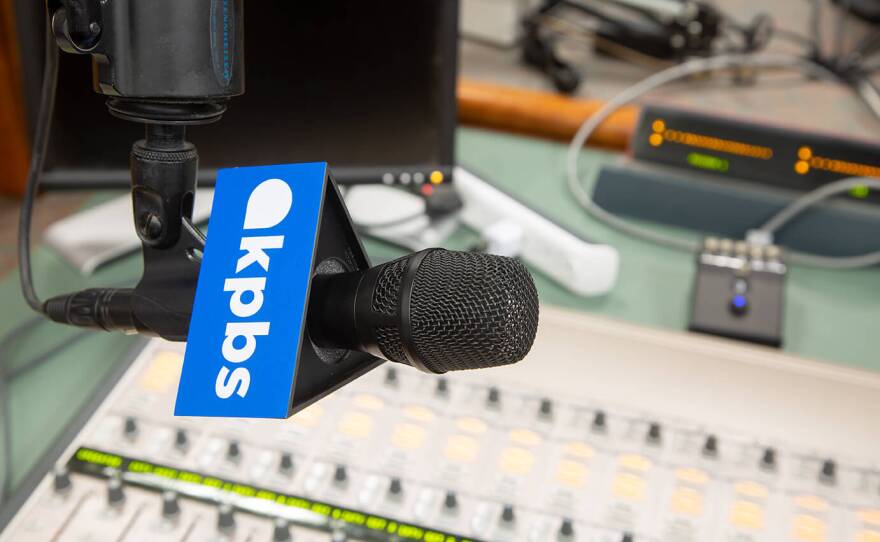
_
Midday Edition Team
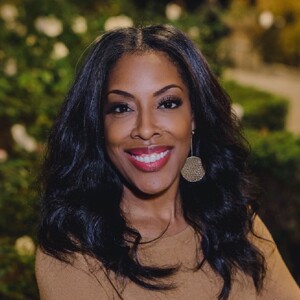
Jade Hindmon
Host
Jade Hindmon is the host of KPBS Midday Edition. She connects San Diego through fearless conversations that inform, inspire and make you think. Prior to Midday Edition Jade was a reporter and fill-in anchor in the KPBS newsroom covering everything from politics to policing and the economy. Her award winning work spans network affiliates across the southeast and midwest. As a very proud Rattler, Jade studied broadcast journalism and political science at Florida A&M University. She takes a special interest in topics about democracy, accountability, racial justice, science and wellness.
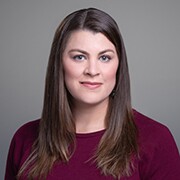
Brooke Ruth
Senior Producer
Brooke Ruth is the senior producer for KPBS Radio News. She previously served as a producer for KPBS Midday Edition and a web producer. Before joining KPBS, Brooke was a web editor for four newspapers and a local television station. She began her career in news at the Imperial Valley Press. She has also been part of the web teams at the Napa Valley Register, North County Times, and U-T San Diego. While pursuing her undergraduate degree at UCLA in psychology, she worked on the student newspaper, the Daily Bruin.
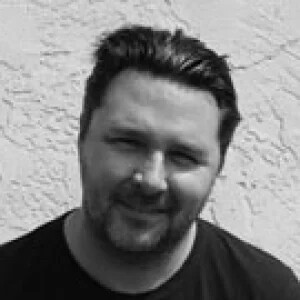
Andrew Bracken
Producer
Andrew Bracken, KPBS Midday Edition and Roundtable producer & host of podcasts "My First Day" & "San Diego Conversations," made "Facing North," a docu-web series on San Diego-Tijuana ties, released on PBS in 2017. He's a San Diego Foundation Creative Catalyst fellow & a San Diego Film Award winner. He drums in his spare time.
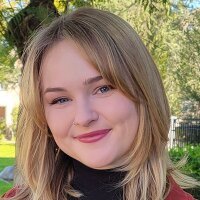
Ashley Rusch
Producer
Ashley Rusch is a producer for KPBS Midday Edition. Before joining KPBS, she was an associate producer at LAist 89.3, where she worked on AirTalk with Larry Mantle, Weekend Edition and All Things Considered. At UC Santa Barbara, Ashley led KCSB-FM’s news coverage through the COVID-19 pandemic. She was also a news intern at KCBX in San Luis Obispo. Ashley grew up in South Pasadena, California.
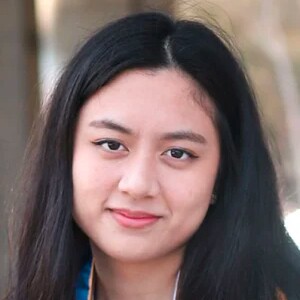
Julianna Domingo
Producer
Julianna Domingo is a producer for KPBS Midday Edition. Before joining the station, Julianna worked at CalMatters as a College Journalism Network Fellow where she reported on higher education across the state. She got her start in journalism at The Triton, an independent student newspaper at UC San Diego. Julianna graduated from UC San Diego with a major in political science and a minor in communications.
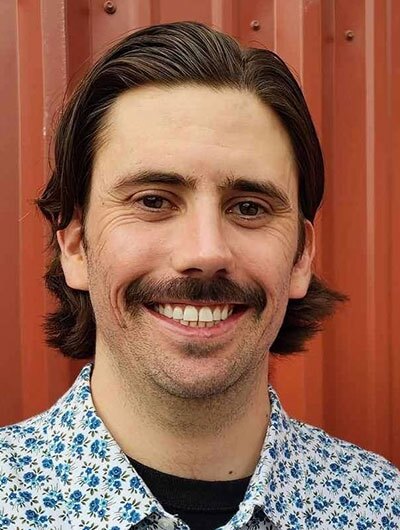
Brandon Truffa
Media Production Specialist
Prior to joining the KPBS Midday team in 2024, Brandon worked as a board operator and producer with The Mighty 1090 in San Diego, and executive producer and sound editor at FOX Sports Radio in Los Angeles. He's a San Diego native and graduate of San Diego State University. In his spare time he enjoys watching sports, going to comedy shows and hanging out with his cats and dogs.

Ben Redlawsk
Media Production Specialist
Ben Redlawsk is a media production specialist for KPBS radio. He provides technical direction for KPBS “Morning Edition” and assists with “KPBS Midday Edition” and “KPBS Roundtable” through audio editing and recording. He got his start in radio as head audio engineer at KSDT, UC San Diego’s student-run radio station. Ben graduated from UC San Diego with a bachelor’s degree in interdisciplinary computing and the arts with an emphasis in music technology.







